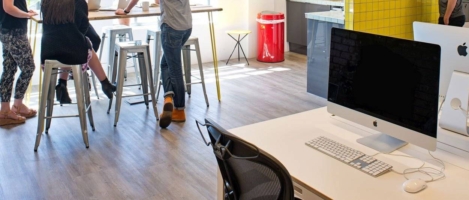August 27, 2015
Three quarters of employers fail to deal with employees’ anger issues 0
 The gunman in Virginia who shot dead two people at his former workplace is thankfully a rare example of someone whose anger at work boiled over into extreme violence. But the case demonstrates the pernicious effect anger and resentment can have in a work environment. While colleagues are expected to work cohesively together to achieve mutual goals and targets, unfortunately this isn’t always the case, and there are often seething resentments building underneath the professional facade. A new study by Health Assured found that 86 percent of workers regularly vent their anger and frustration at a co-worker and three quarters (74 percent) of them claim that their manager regularly makes them angry by not leading the workforce effectively. A failure to manage such situations is borne out in the fact that 79 percent of employers admit to finding it difficult to deal with employees with anger management issues.
The gunman in Virginia who shot dead two people at his former workplace is thankfully a rare example of someone whose anger at work boiled over into extreme violence. But the case demonstrates the pernicious effect anger and resentment can have in a work environment. While colleagues are expected to work cohesively together to achieve mutual goals and targets, unfortunately this isn’t always the case, and there are often seething resentments building underneath the professional facade. A new study by Health Assured found that 86 percent of workers regularly vent their anger and frustration at a co-worker and three quarters (74 percent) of them claim that their manager regularly makes them angry by not leading the workforce effectively. A failure to manage such situations is borne out in the fact that 79 percent of employers admit to finding it difficult to deal with employees with anger management issues.



































August 17, 2015
What Edward T Hall (and Jerry Seinfeld) can teach us about stress and design
by Mark Eltringham • Comment, Facilities management, Workplace, Workplace design
Work-related stress is the biggest cause of working days lost in the UK. According to the HSE’s most recent statistics, around 11.3 million days were lost to it in 2013/14, the most significant cause of absenteeism. The reasons for this are clear in the minds of many: the demands made on us by employers are increasingly intolerable, our own time is being eroded by work, we spend too much time at work, we’re under excessive pressure to perform and as a result we’re all either knackered, unfulfilled, stressed, depressed or anxious. Or guzzling a noxious cocktail of all of them. But there is another factor that has come into play over the last few years. As workstation sizes have contracted in response to new technologies and new space planning models, people have been forced closer to their colleagues, meaning that not only has their time been eroded, so has their space.
(more…)